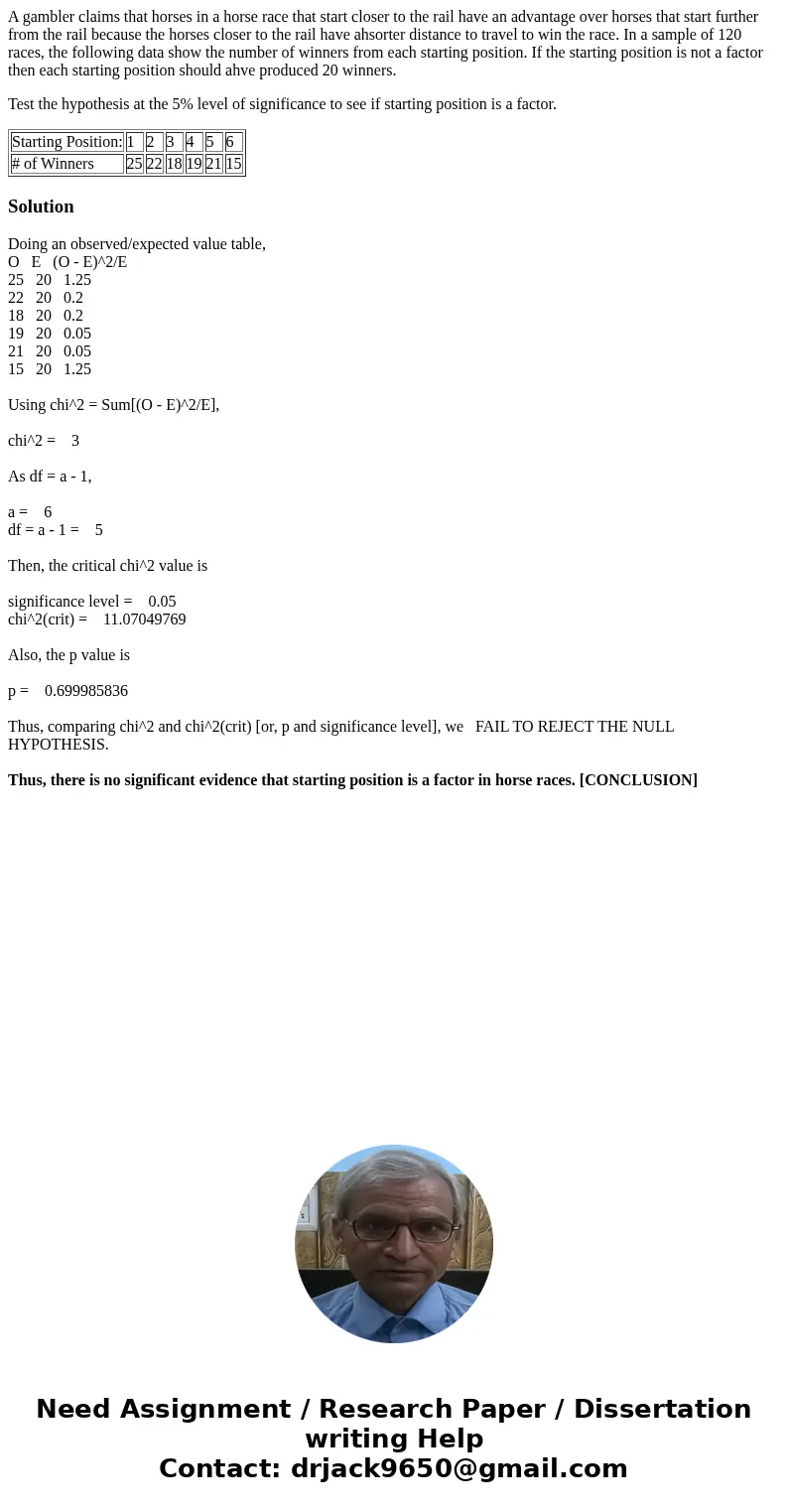A gambler claims that horses in a horse race that start clos
A gambler claims that horses in a horse race that start closer to the rail have an advantage over horses that start further from the rail because the horses closer to the rail have ahsorter distance to travel to win the race. In a sample of 120 races, the following data show the number of winners from each starting position. If the starting position is not a factor then each starting position should ahve produced 20 winners.
Test the hypothesis at the 5% level of significance to see if starting position is a factor.
| Starting Position: | 1 | 2 | 3 | 4 | 5 | 6 |
| # of Winners | 25 | 22 | 18 | 19 | 21 | 15 |
Solution
Doing an observed/expected value table,
O E (O - E)^2/E
25 20 1.25
22 20 0.2
18 20 0.2
19 20 0.05
21 20 0.05
15 20 1.25
Using chi^2 = Sum[(O - E)^2/E],
chi^2 = 3
As df = a - 1,
a = 6
df = a - 1 = 5
Then, the critical chi^2 value is
significance level = 0.05
chi^2(crit) = 11.07049769
Also, the p value is
p = 0.699985836
Thus, comparing chi^2 and chi^2(crit) [or, p and significance level], we FAIL TO REJECT THE NULL HYPOTHESIS.
Thus, there is no significant evidence that starting position is a factor in horse races. [CONCLUSION]

 Homework Sourse
Homework Sourse